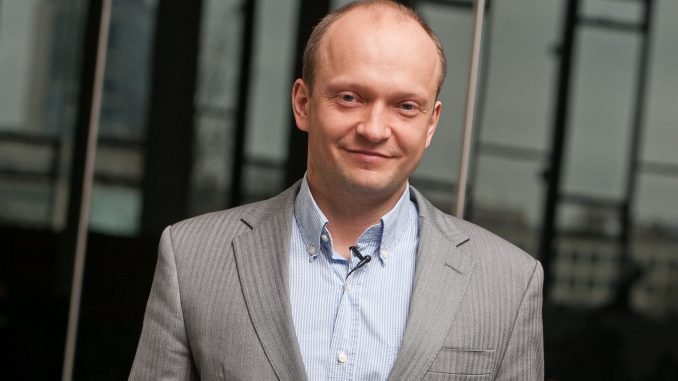
At the end of the 2019 year, Lithuanian economic growth has not fully lost momentum and this is something to celebrate. However, it does not inherently guarantee that without extra effort, we can expect further export, wage and investment growth, as well as social progress, Nerijus Mačiulis wrote.
Lithuanian GDP growth slowed somewhat in Q3 this year, but was still at a 3.7% that is beyond the reach of most EU member states. For now, export growth does not show any particular signs of exhaustion – goods export was 6.3% greater in the first nine months of this year than the same period last year, while services export rose by almost a fifth in the same period. What is interesting is that even to the stagnating Germany exports grew more than 9%.
Wage growth in Q3 this year accelerated once more to 9.2%. Public sector wage growth exceeded 12%, while private sector wage growth accelerated to 8%. This year, the wage portion in the national income structure reached record heights – 45% of GDP. There is even less room for further wage growth, particularly if more attention is not focused on investment and productivity.
Let’s be realistic – Lithuania’s continued progress is not guaranteed. With worsening production forecasts, industrial confidence metrics have reached the lowest levels since 2017. Worrying clouds still loom on the horizon, able to hamper or even fully halt economic growth. US-Chinese economic relations remain tense and any agreement is likely to be fragile and short term. The German industry is still contracting and we will likely only experience the negative consequences of this next year. Furthermore, there is no lack of other political and geopolitical risks.
Cause for a celebration?
In this context, we can celebrate Lithuania’s balanced economy – a foreign trade surplus, surplus budget and accumulated reserves, good citizen and business financial conditions, a stable and not overheated development of the housing market. However, alongside celebrations, economic policy decisions, which would spur on further progress would be suitable.
Unfortunately, Lithuania’s growth could be clipped not only by external shocks, which do not depend on our own work and efforts but also the chaotic nature of the economic policy. With just a month to New Year’s, citizens and companies are still in the dark on what taxes they will have to pay from January 1 next year.
Unfortunately, the legislatively established practice that from tax announcements to tax implementation, at least 6 months must pass could be disregarded once again. This rule does not apply when approving the budget, however, this exception is there only for emergency situations – when the tax system has to be adjusted due to an inability to uphold existing state commitments.
Currently, government sector revenue from tax and other sources has been growing more than half a billion euro per year and it seems that this should suffice to adequately arrange priorities and satisfy most social needs. Unfortunately, with promises exceeding capacities, we are forced to sporadically adjust the tax system, thus not only creating uncertainty for the public and for companies but also harming the investment environment.
But let’s be realists
We cannot deny the need to increase social benefits, public sector wages and children’s money. However, the financing sources of all state expenses must be realistic and sustainable. Unfortunately, some of the taxes proposed in Seimas, as per the experiences of other countries, could be ruled as illegal by the European Commission and could fail to bring revenue. Already in their evaluation of Lithuania’s progress and prospect, IMF representatives highlighted that the negative externalities of the proposed taxes have not been evaluated.
Watching the approval process for next year’s budget, one is left wanting to recommend to discuss next year’s budget in the future already from January. Even better – plan it more than just one year ahead. Then we would avoid situations where funds for the budget are not sought in areas recommended by the National Audit or there are no efforts to demand more effective management of state-owned companies and their greater contribution to the state budget. Perhaps structural reforms would also then not be forgotten, for example, the optimisation of public sector institutions, which would allow to free up funds for sustainable wage increases.

No one is ever recommended to only focus on how to reap this year’s harvest and how to distribute it. It is especially ill-advised to chop tree trunks and roots while enthusiastically harvesting fruits. Seeking long term state prosperity and sustainable growth of citizens’ incomes, we must also think about what we will harvest next year and the year after.
So far, this year’s sowing does not promise much – the appeal to investment and state education quality harvest will probably not be much greater.
Nerijus Mačiulis is the chief economist of Swedbank.

Be the first to comment